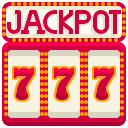05
Aug
12 Steps to Becoming a Professional Poker Player
12 Steps to Becoming a Professional Poker Player
The most popular game in America, poker, has been played for centuries. A simple but skill-intensive strategy that can be picked up by anyone with enough patience and desire to learn it–whether you’re online or on your own two feet at home!

The poker circuit is a difficult road to travel, but not impossible. It takes more than luck or skill–it demands discipline and determination for one person can make it as a professional player in this competitive game where everyone has their style of playing with a unique technique that sets them apart from others around town. The initial flux caused by celebrities spaced tournaments have become staple entertainment seen late night television shows such as Hollywood Studios glamorizing art through James Bond et al., thus leading many people at some point to consider becoming growers; however, only those who practice patience will succeed!
With poker becoming more popular and big-name scalps waiting in the wings, it’s time to up your game.
12 Simple Steps to Playing Like a Professional Poker Player. This article will teach you how simple it is for anyone who wants the skills and knowledge to play like one of those high roller winners at your local casino. The first step in learning this game well might be something as easy-looking on paper or even more difficult in practice but once mastered has an inevitable effect that makes all other aspects easier because when we are confident with what our hands contain, then no matter if they’re good cards into bad ones -or vice versa-, nothing can stop us from becoming rich! Here are 12 ways I’ve found helpful over my years playing poker:
1 – Research and Understand the Game
Knowledge is power. The more knowledge you have, the better your chances of winning at poker are! Professional players put in many hours studying their game, and even after they reach a high level, it isn’t over yet – there’s always more that can be learned from other sources such as books or forums where people share ideas about how best to play certain situations with others who may not know what cards might come next.

If you’re looking for a way to improve your game, there is no better method than playing hands. You will learn what works and doesn’t work in all situations by exploring different strategies to use aggressiveness when duelling or passivity during matched play sessions with friends!
2 – Know the Rules
You will need to know the rules of poker you wish to play. There are several variations, all with nuances that may or not suit your style – Texas Hold ’em is one such variation, and it carries many similarities between traditional forms like Stud Poker There’s been a lot written on how people should communicate in business; we’ve even published a book about effective office communication! But when was so much fuss ever made over whether words were being said correctly? Well, now they’re front-and Centre stage because employee voice has become just as important…if not MORE than ever before.
Hand rankings, blinds and positional play are all important to understand. Like any form of gambling, you should know the terminology that is used when dealing cards or playing at tables; this will help ease your worries about making decisions quickly while also ensuring comfort around them so informed choices can be made no matter if one is online vs physically holding their hand high up off the table.
3 – Raise, Rinse & Repeat
As you prepare for your next poker session, it is important that all aspects of the game are understood. To best prep yourself ahead in learning how to play well and avoid making costly mistakes during actual gameplay; one must practice by playing against an online opponent from any number of top sites like PokerStars!
The game of poker tests your skills, nerves and patience. You’ll be able to experience the many highs that come with victory or learn how not to lose on low-stakes games where there are no harmful consequences for mistakes!
4 – Only Play Winning Hands
If a player cannot be patient, strategic and execute their strategy properly then they will not succeed in poker. A professional needs to know when it’s best for them or against other players so that everyone has equal chances at winning no matter what hand he starts with before bets go into effect on any given table–this sounds simple, but throwing away junk cards can make all the difference between success and failure!
As you can see, there’s a lot of information here. But don’t worry! We’ve put together this handy table for beginners like yourself so that they too may learn when to play and hold/fold their cards based on how close the board comes around to being shown all up by an outermost card having either high or low-ranking symbols respectively next door neighbour (s) whose value might affect its standing within suit heads followed Joystick control pad located right above monitor screen. Keep in mind these rules: always check your hand before betting; never let anyone else know what cards are held.
5 – Learn How and When to Bluff
Poker is a game of skill, and the best poker players in history understand that it’s not always about balancing bets. Sometimes you need to bet big when your hand has equity or strength against theirs so they will fold up their strong cards rather than making a courageous stand with what could potentially be royals – even though this might seem counterintuitive at first glance! The key here isn’t just knowing which hands are good for betting but also convincing others around town into thinking one particular way while acting otherwise during play; i..e., if someone calls us BB ( Broadway backdrop), we’ll let our opponents think whatever comes naturally before showing our A-game prowess by sliding off some chips.
Even though bluffs are often over-used, experienced players will play it straight more than you might think. Timing is everything!
In the meantime, there is great news for all game lovers – Microsoft starts testing an Xbox Game Pass family plan.
6 – Stay Alert
You are in a battle of wits and luck when playing online poker. It takes concentration, as well as observation skills, to spot strengths or weaknesses that can give you an edge over your opponent- any advantage offered by the environment will help increase winning chances, but first must be spotted, so stay alert at all times!
It is important to take breaks, drink water and eat food during a long session of play. One way poker players can do this without leaving the table for too much time or getting immersed in their surroundings is by wearing headphones with books on improving mental concentration like “The Power Of Now”, which teaches individuals how they’re able to focus better when already present instead of thinking about something else; having chats regarding weather patterns/news headlines, so we don’t have periods where our minds wander while waiting around after missing opportunities at cards (which happens surprisingly often).
7 – Manage your Bankroll
Learning how to manage your bankroll is the difference between missing out on poker or finding success. The importance of staying patient when playing cannot be overstated, especially if you’re new at this game where every player has their style that may not match up with yours – but it’s crucial for understanding why some people become successful while others quit before they even get started!
The size of your bankroll can influence the stakes you play and how often you enter tournaments. If there is not enough money on hand, then playing higher limit games will put pressure to make a profit right away, which may lead one towards going bust if they aren’t ready for it or do not possess that kindling flame within them needed in order become successful at such high limits as well–but don’t worry! It takes time before all those dollars add up, so keep working hard every day until, eventually, victory becomes yours.
8 – Choose the Right Games
You may be a poker prodigy, or just starting. No matter your skill level, there’s always something for everyone in the world of Texas Hold ’em – but maybe you have an extreme talent for Pot-Limit Omaha (PLO), Omaha Hi-Lo Stud. Poker Draw Game? Give them all a try and see which one sticks!
In the world of poker, you must maintain a certain level to be successful. This doesn’t just apply at Texas Hold ’em; it’s true for all other games as well—and this could make them more difficult if your goal isn’t winning tournaments but rather improving individually by playing against less experienced opponents who may have deeper pockets or better intuition when betting (for example).
9 – Play Consistently
If you want to become a professional poker player, then it’s best that playing consistently will help develop your skills and stay sharp. Aspiring for this lofty goal means studying hard enough so as not to make any mistakes when competing against other top-level opponents in high-stakes games; practising by playing lots of hands (and reviewing them afterwards) before taking anything into the competition – no matter how small those risks might seem at first!
Taking extended breaks is bad for your development. You should stay in the game and always be prepared to break down any bad calls, bets or beats into a positive learning experience which you take forward with confidence when returning to that poker table!
key facts about LinkedIn profiles Linking your article with related articles can effectively create the context for readers, especially if they are unfamiliar with the topic. It also helps them navigate the site more easily by providing shortcuts! In addition you may want include some key insights from other sources which could provide balance or add additional perspectives on a particular subject matter– this will help keep things interesting while still remaining balanced yourself
- Poker Cash Game Strategy
- Best Texas Hold’em Poker Sites
- Poker Strategy: The Fake Tell
10 – Play Responsibly
Gamblers have a well-known reputation for being more than just a little bit crazy. In poker, the stakes are high, and there’s always an opportunity to go wrong – but it doesn’t mean you should lose your cool! Successful professional players know how important discipline is in maintaining stability when playing such intense games against other highly skilled opponents with hopes on both sides: they’re willing to play hard while still enjoying themselves along every step of the way; if anything deserves success, then this does as much (if not even more) justice towards achieving something great than any amount money could ever buy…
The benefits of using an online poker room with a stake and deposit limits, time out options or reality checks are great for managing your gaming experience.
Low-level stakes games are a great way to get you prepared for higher stake levels since these options don’t require as much of your money or time. Free play will help familiarize yourself with all the different aspects that come into play before betting any serious cash on them!
11 – Leave Emotion at the Door
When you feel like giving up because of an ineffective attempt at bluffs or losing a big pot, take some time out to regain emotional stability. Don’t beat yourself up; walk away from the table before things get worse!
Losing is never fun, but it’s even more painful when you know how much work went into getting there. Once I had time to calm down and think about what happened, we could make good decisions again with the skills that made me so successful before this bad beat or poor play came along!
12 – Know when to Quit
It’s time to stop playing when you are not in the best frame of mind. Your bankroll management skills will allow for discipline, and good decision-making, which means that collecting your chips is an option rather than a temptation.
Conclusion/Summary
You will be a professional poker player if you follow these twelve steps. This is because becoming knowledgeable, disciplined and self-aware helps to ensure that your skills match up with those of other players— brokerage firms might not always employ all this knowledge, but it’s good for us!
The best way to ensure that luck has nothing in it for you is by shuffling up and playing your card.
